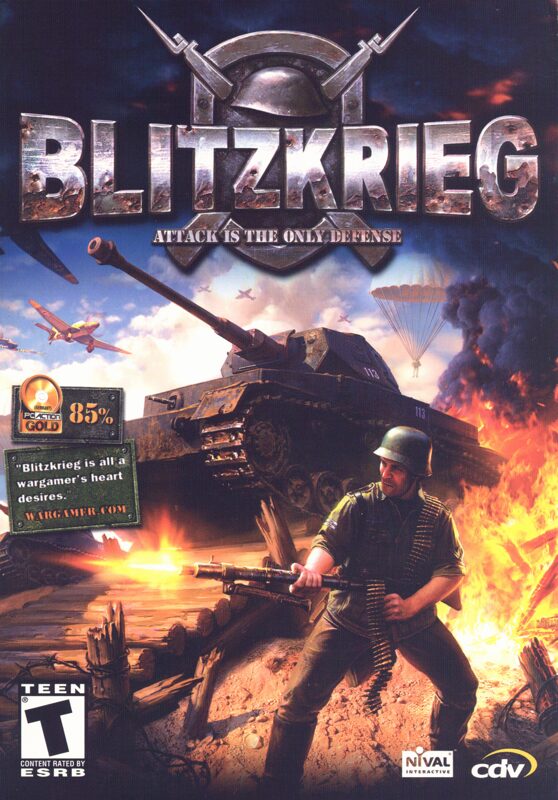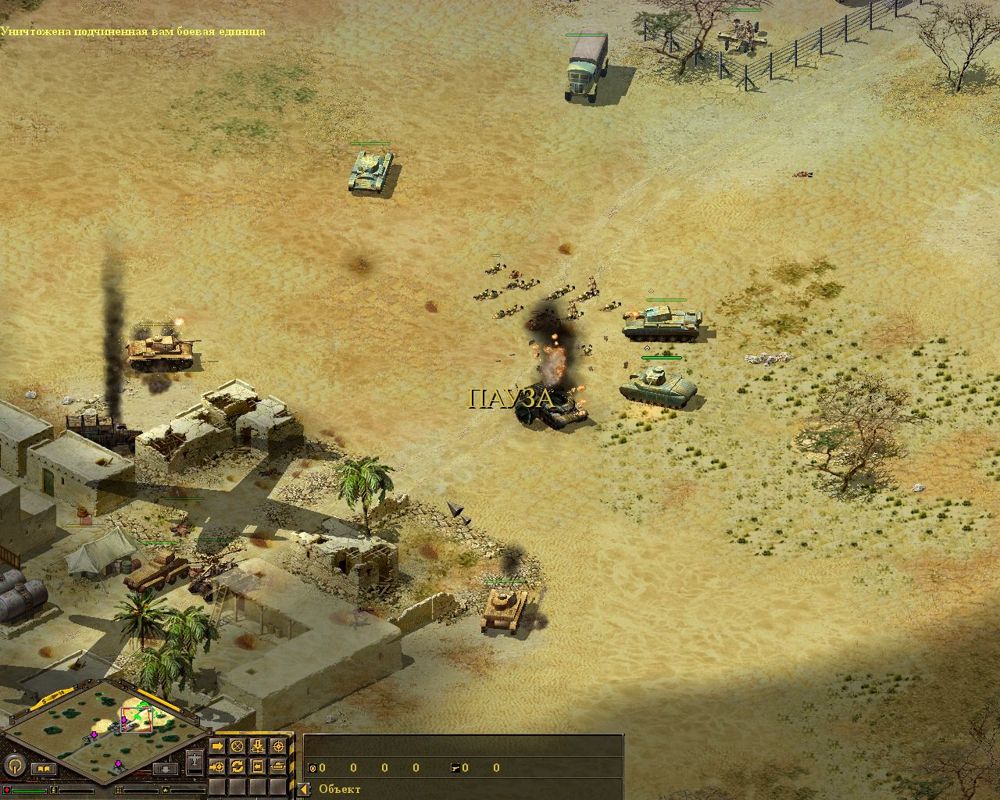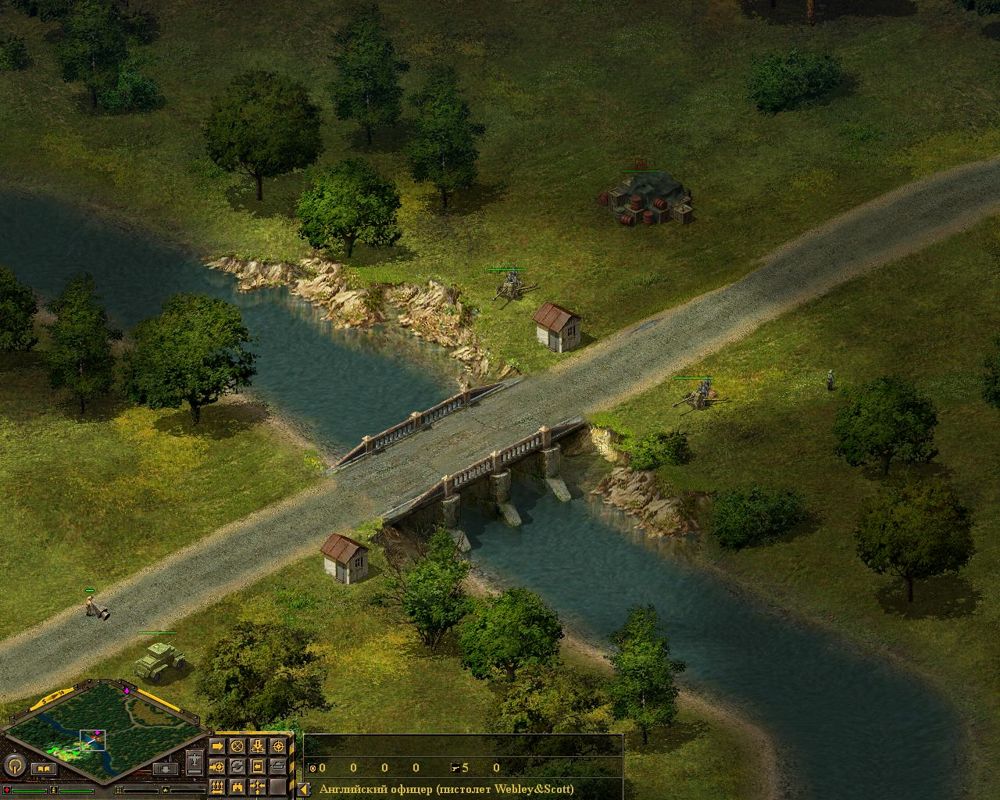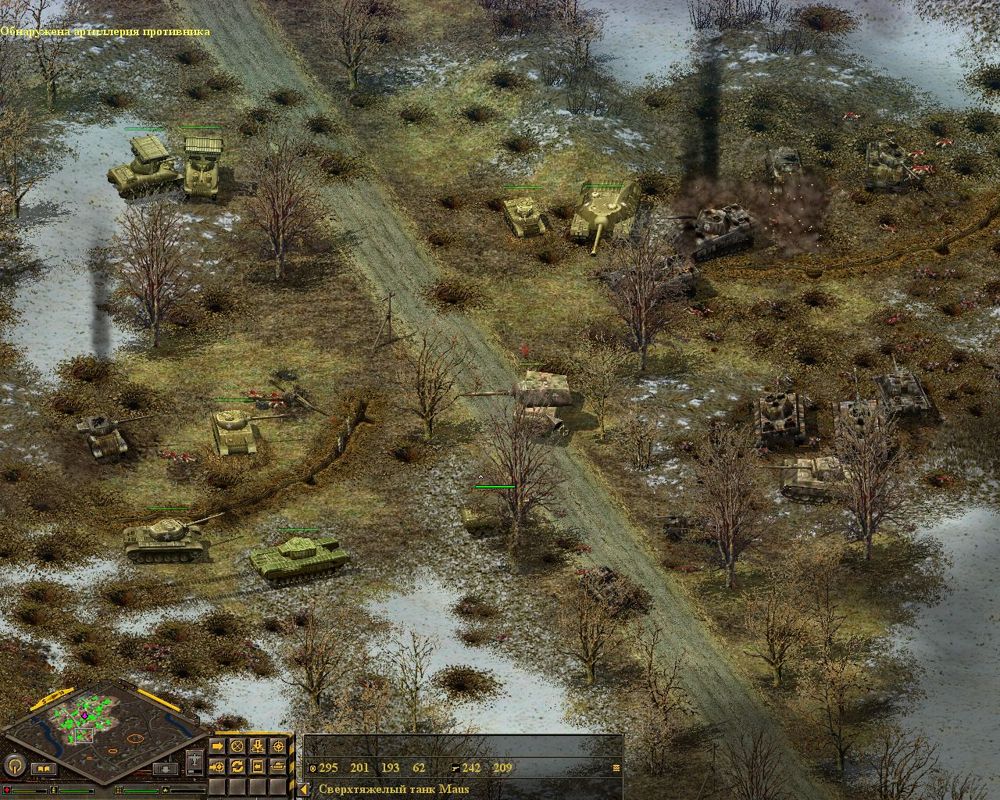Retro Replay Review
Gameplay
Blitzkrieg excels as a real-time strategy game by placing a persistent core army at the heart of every campaign. Rather than rebuilding forces from scratch after each mission, you retain your tanks and artillery units, fostering a sense of long-term investment in each vehicle and weapon system. Supplementary forces—such as infantry squads, anti-aircraft guns, and fighter escorts—are provided dynamically on a mission-by-mission basis, which ensures that each battle feels fresh and varied.
(HEY YOU!! We hope you enjoy! We try not to run ads. So basically, this is a very expensive hobby running this site. Please consider joining us for updates, forums, and more. Network w/ us to make some cash or friends while retro gaming, and you can win some free retro games for posting. Okay, carry on 👍)
The progression system adds depth beyond the typical “build-and-destroy” formula. Completing optional bonus missions grants experience points both to your player profile and individual units. As your profile rank rises, you unlock the ability to field a larger core army, while veteran units gain combat bonuses that make them deadlier on the battlefield. You can even exchange older weapon models for upgraded variants, giving a palpable sense of technological advancement as the war unfolds.
Logistics and attrition play a critical role in Blitzkrieg’s challenge. During missions, any losses you suffer are permanent until you complete the scenario, and core army casualties only replenish afterward. To repair and rearm, you must capture and hold supply depots, where service trucks will arrive to load unlimited resources. This push-and-hold mechanic forces you to balance aggressive thrusts with cautious consolidation, especially when enemy counterattacks threaten to cut off your supply lines.
Graphics
Visually, Blitzkrieg employs finely detailed 2D sprites for units against a fully realized 3D terrain map. The contrast between the flat, painted textures of infantry and tanks and the rolling hills, forests, and rivers of the three-dimensional landscape creates a unique aesthetic that remains surprisingly readable even in the chaos of battle. Every tree you blow apart and building you demolish leaves behind realistic rubble, underlining the game’s commitment to a destructible environment.
Unit animations are functional rather than flashy, but each tank turret swivels smoothly, and infantry squads scurry from cover to cover with convincing urgency. Smoke plumes, explosion effects, and the occasional tracer round arcing through the sky add just enough visual flair without distracting from tactical decision-making. Lighting and weather effects—such as morning fog over the Kursk battlefield or sun-baked dust in the African desert—contribute to an immersive mood on each map.
Multiplayer maps leverage the same graphics engine, ensuring that skirmishes over LAN or the internet look and feel consistent with the single-player campaigns. While the art style may show its age by modern standards, Blitzkrieg’s visuals remain clear, purposeful, and evocative of the World War II setting. If you appreciate strategic clarity and environmental interactivity over high-resolution textures, the graphical presentation will serve you well.
Story
Blitzkrieg unfolds through three interconnected campaigns—Allies, German, and Soviet—each featuring historically inspired battles across Europe, Africa, and Russia. You might spearhead an Allied armored thrust across the North African dunes one mission and then defend a frozen village outside Stalingrad the next. The campaign structure offers varied theaters, from the blistering heat of the Sahara to the mud and snow of the Eastern Front.
Historical authenticity is a strong suit. Each scenario opens with a concise briefing that sets the strategic objectives, describes opposing forces, and highlights key terrain features you’ll need to seize. Iconic engagements such as the Battle of Kursk are faithfully recreated, giving players a genuine sense of the stakes involved—even if the game stops short of fully dramatized storytelling, opting for a more straightforward military chronicle instead.
Bonus missions further enrich the narrative context by allowing you to pursue alternate objectives that mirror real wartime decisions—whether that’s reinforcing a faltering flank or executing a risky flanking maneuver behind enemy lines. These side operations may not change the overall historical outcome, but they do deepen the feeling that you’re guiding a living, evolving campaign rather than moving chess pieces on a board.
Overall Experience
Blitzkrieg delivers a robust, historically grounded RTS experience that rewards careful planning, tactical flexibility, and logistical foresight. By blending a persistent core army with dynamic reinforcements, it strikes a satisfying balance between campaign-level strategy and mission-specific tactics. If you relish the idea of nurturing veteran units through multiple battles and adapting to evolving objectives, this title will feel right at home.
Though its presentation may feel dated compared to modern war games, Blitzkrieg’s combination of destructible terrain, varied theaters of operation, and multiplayer support keeps the gameplay engaging over dozens of hours. The learning curve can be steep, especially when juggling supply-line management and environment-based defenses, but for committed strategy fans, those challenges are part of the appeal.
Ultimately, Blitzkrieg stands out as a thoughtful tribute to World War II’s grand tactical battles. Its emphasis on unit preservation, historical flavor, and multiplayer skirmishes makes it an excellent choice for players seeking depth and authenticity. Whether you’re storming Normandy’s beaches, driving through the Russian steppes, or holding the line at Kursk, Blitzkrieg offers a rich, immersive journey through one of history’s most compelling conflicts.
 Retro Replay Retro Replay gaming reviews, news, emulation, geek stuff and more!
Retro Replay Retro Replay gaming reviews, news, emulation, geek stuff and more!









Reviews
There are no reviews yet.